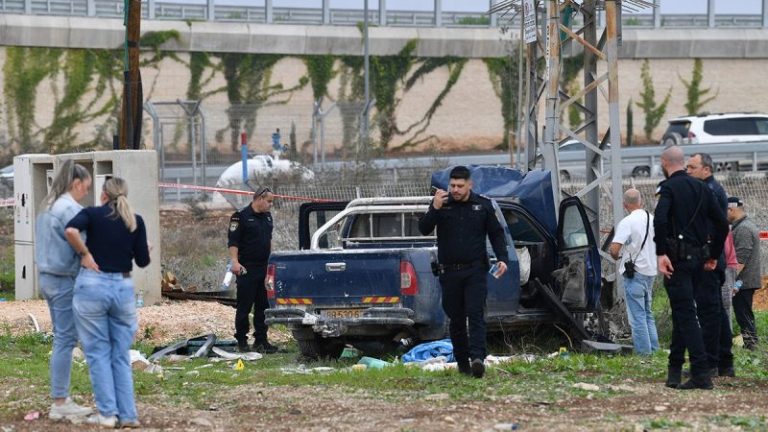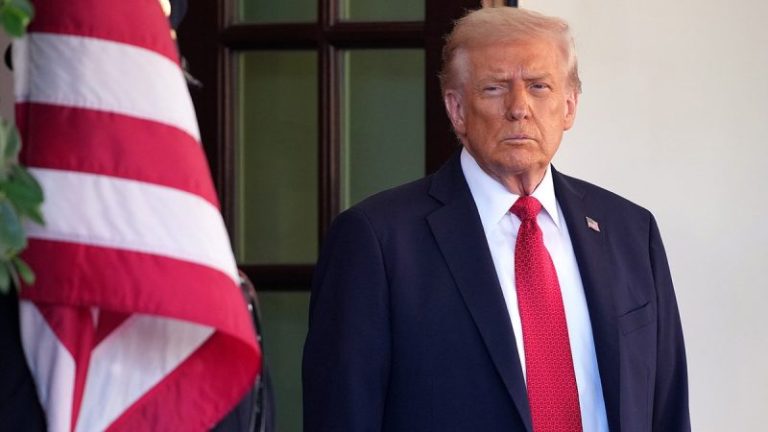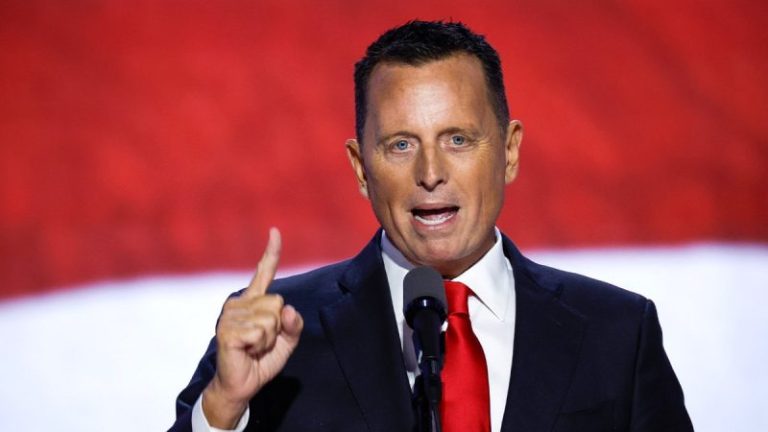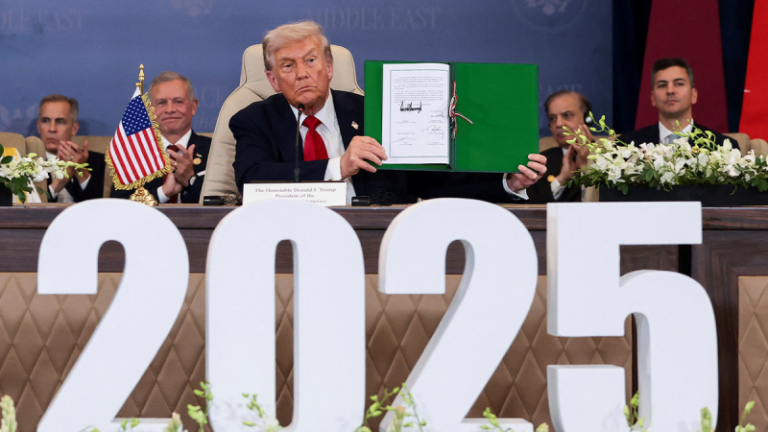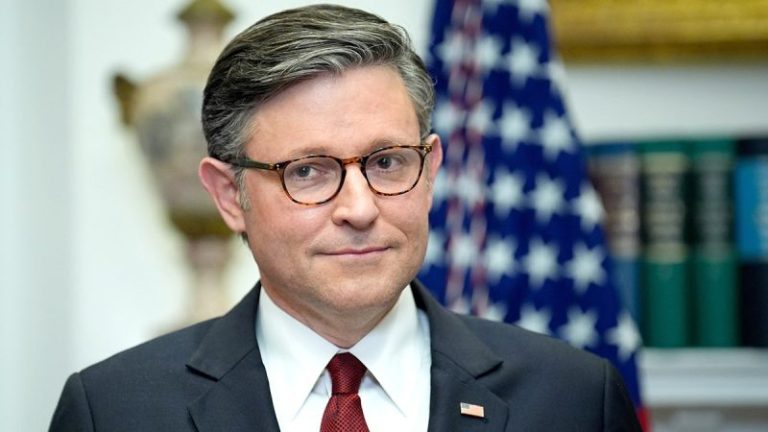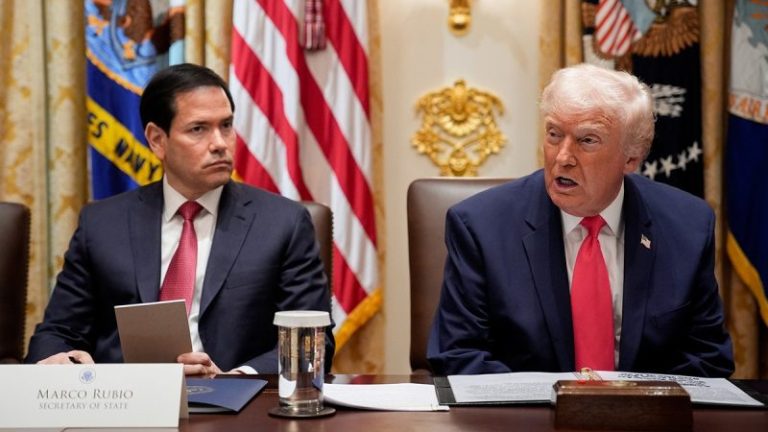Israeli Foreign Minister Gideon Sa’ar blasted the Palestinian Authority (PA) for emboldening terrorism with its infamous ‘Pay-for-Slay’ program after a Palestinian on Friday murdered two Israelis.
Palestinian terrorists murdered 19-year-old Aviv Maor from Kibbutz Ein Harod and Mordechai Shimshon, 68, from Beit She’an on Friday in northern Israel.
The Palestinian Authority ‘Pay-for-Slay’ policy gained wide public attention when Taylor Force, a West Point graduate who served in Afghanistan and Iraq, was savagely knifed to death by a Palestinian terrorist on March 8, 2016, while on a tour of Israel. President Donald Trump signed the Taylor Force Act into law in October 2018, after a vigorous campaign by Force’s parents, Robbi and Stuart Force.
Prior to Friday’s terrorist attacks, Sa’ar issued warnings to the international community about alleged Palestinian leadership deception. He wrote on X: ‘Don’t believe Mahmoud Abbas’ lies. The Palestinian Authority’s payments to terrorists and their families haven’t stopped. The PA decided to continue its ‘Pay-for-Slay’ policy. This includes payments to the families of ‘martyrs’ and injured terrorists, jailed terrorists and released terrorists. The PA is also disguising the payments to the released murderers as payments to pensioners of the Palestinian Security Services! This is distorted. End ‘Pay-for-Slay’ now!’
Abbas is the 90-year-old chain-smoking president of the Palestinian Authority in the West Bank (the region is known in Israel by its biblical names of Judea and Samaria.)
Kobi Michael, a senior researcher at Israel’s Institute for National Security Studies, told Fox News Digital that contrary to Palestinian Authority claims about stopping the ‘Pay-for-Slay’ program, there has been ‘no substantial change in Palestinian Authority policy with regard to the payments to terrorists.’
He continued that ‘They are making noises as if they are changing their policies.’ But he termed it a ‘façade’ with no change in policy.
Michael said that ‘Pay-for-Slay will continue in a different manner. Donors and the international community [who finance the PA] will find it more difficult to monitor it.’
The counter-terrorism expert, Michael, who is also a fellow at the Misgav Institute for National Security & Zionist Strategy, said the PA ‘defines terrorists as social welfare. They continue to support incitement against Israel. They continue remaining dysfunctional.’
According to a Dec. 19 report in the Times of Israel, a PA-linked organization –The Palestinian National Economic Empowerment Institution (also known as Tamkeen) — disputed the Israeli government claim that ‘Pay-for Slay’ is still intact.
Tamkeen noted in its statement that it ‘confirms that the payment system linked to the number of years of imprisonment has been completely and permanently abolished and is no longer in effect in any way.’ It added that ‘Claims regarding its continuation fall under the category of deliberate misinformation and falsification of facts.’
Fox News Digital reached out numerous times to the Palestinian Authority for a comment and sent press queries to the Palestinian National Economic Empowerment Institution (Tamkeen.)
When asked by Fox News Digital what donor nations can do to stop ‘Pay-for-Slay,’ Michael said, ‘Be strict when it comes to financial donations,’ adding there are ‘many ways to pressure the Palestinian Authority.’
He sharply criticized Western European leaders who recognized an independent Palestinian state in 2025 without ensuring that the state would be a non-sponsor of terrorism. ‘Western leaders, the British prime minister, the French president and the Spanish prime minister are rushing and running to recognize a Palestinian state, and they don’t care what takes place under the Palestinian Authority in the territories.’ He said their recognition is ‘an incentive to continue to ‘Pay for Slay.’’
Michael said the Trump administration is the only one ‘applying pressure on the Palestinian Authority.’
He stressed that if the U.S.-designated terrorist movement Hamas is not dismantled and disarmed in Gaza, ‘it will be another achievement of Hamas and the Palestinian Authority.’
The U.S. State Department and American Embassy in Jerusalem did not immediately respond to Fox News Digital press queries.

